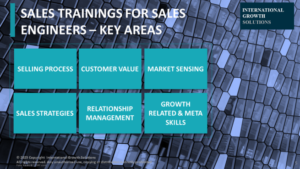-
North AmericanNorth American

Association of Sales Engineers
Association of Sales Engineers
Menu
North American Association of Sales Engineers

Picture this: I’m walking into a packed arena in New York City, undefeated, headlining the main event as a professional Muay Thai fighter. I’ve sacrificed years, pushing my body and mind past the limits, climbing the ranks toward a dream. The crowd is electric. My friends, my family, even my 8-year-old son, are watching.
Then it happens. One punch. Ten seconds gone. I hit the canvas face-first.
That kind of moment, where everything you’ve worked for feels like it just disappeared, hits hard. But it’s not just fighters who face it. The sales world has its own version of the knockout.
Sales engineers face a different kind of fight.
You’re constantly:
It’s a high-stakes role. And sometimes, even when you do everything right, the deal still slips through. That’s a tough pill to swallow.
But here’s what the ring taught me: You can’t control the hit. But you can control how you respond to it.
That’s why technical mastery alone will only take you so far. What separates champions in the ring, and top performers in sales, is mental and emotional resilience.
There are three mental “dictators” that knock us down harder than any client rejection:
These inner opponents are louder than the crowd and more relentless than any client objection. But over three decades in the fight game, I built a framework that’s helped my clients bounce forward, not just back.
I call it the A.C.T. Framework:
Wishing it went differently won’t help. Denial and blame keep you stuck. Acknowledge what happened, no sugarcoating, and decide to move forward. Own the moment, don’t avoid it.
When rejection hits, the mind spirals:
“I’m not cut out for this.” “I should’ve done more.” “Maybe I just got lucky last time.”
Challenge those thoughts. Ask: What’s another way to look at this? What would a champion do?
You don’t climb the mountain in a single leap. One small step. Go for a walk. Call a teammate. Review the loss, but don’t dwell in it. Action beats rumination every time.
So the next time you get knocked down, whether by a prospect ghosting you or a deal slipping through, remember: your real fight is internal. The A.C.T. Framework is your corner man. Use it.
Because in sales, just like in the ring, resilience isn’t about avoiding hits. It’s about showing up again, sharper, stronger, and ready for the next round.
Chris Romulo is a former professional Muay Thai champion, resilience expert and performance coach. He helps teams in high-pressure industries, like sales engineering, train for moments that matter using real-world tools drawn from the ring. Learn more at www.chrisromulo.com/corporate

Imagine being a sales engineer, confidently explaining a complex product to a room full of engineers, finance experts, and operations managers, each with unique concerns. You tailor your pitch to speak to their specific needs, combining technical knowledge with a clear business case. As a senior at Purdue University, I am exploring the key traits that make sales engineers successful in balancing these demands and want to understand what experiences shape their skills.
As a current student studying Integrated Business and Engineering at Purdue University, my senior year includes a capstone project. This class allows my classmates and me to explore numerous topics, especially those in fields we are interested in. This brand-new major at Purdue translates technical knowledge from engineering courses into cost-effective business plans through the business school degree. With an interest in project management, data analytics, and sales, my team has landed on studying character traits and behaviors of sales engineers. We aim to discover if there are similarities among sales engineers, as much research on sales has not focused specifically on this technical position.
Since our major emphasizes this idea, we brainstormed what we believe makes sales engineers successful.
For our project, we wanted to explore if there were signs that someone would be a good sales engineer before they got into this position. This is where we are asking for help. We have created a Google Form that allows sales engineers to write about their experiences in the field. Understanding the backgrounds professionals come from can help us find common traits. If there is a formative experience many successful sales engineers have gone through, we may find they gained key skills from it. We also may identify innate character traits that enable these professionals to excel in the field. The survey is linked below—please share your experiences as a sales engineer.
The survey takes approximately two minutes to fill out, and our team would greatly appreciate your participation. None of the questions are mandatory, so if you do not feel comfortable sharing something, feel free to skip it and move on. Thank you!
Take the survey here: Sales Engineers Survey
About the Author
Senior Alyssa Younker is from Michigan, studying for a Bachelor of Science in Integrated Business and Engineering at the Mitch Daniels School of Business. She is also pursuing a Certificate of Entrepreneurship and Innovation and has a concentration in Hospitality and Tourism Management.

Happy #AprilFoolsDay from NAASE! Today, we’re celebrating the unique blend of humor, technical expertise, and occasional panic that comes with being a Sales Engineer. See if these resonate with you…
You know you’re an SE when…
1) Your best “sales pitch” starts with: “Technically…”
2) Your kid asks to play in the sandbox, and your first thought is: “Did we whitelist that?”
3) You’ve developed a sixth sense for when sales is about to say something technically impossible.
4) You judge products by how quickly they can be demoed. Bonus points if no VPN is required.
5) Your date says, “Discovery’s on at 8,” and you ask cautiously, “Is Sales dialing in too?”
6) You catch yourself saying “yes, but…” at least five times per meeting.
7) Half your job feels like preventing AEs from accidentally promising magic.
8) You’re mentally debugging your colleague’s sales pitch in real-time.
9) The phrase “quick demo” triggers your fight-or-flight response.
10) You’ve ever been described by sales as “our secret weapon.”
Which ones hit home? Feel free to add your own in the comments below, we can’t wait to read them!

They say you have to be loud and outgoing to succeed in sales. But when it comes to Sales Engineering – where deep product knowledge meets genuine customer connection – introverts often shine in unexpected ways. Instead of battling for the spotlight, they leverage observation, empathy, and focused communication to build meaningful solutions. Here are five reasons a quieter approach can be a powerhouse in the SE world:
Embrace these strengths if you’re an introverted Sales Engineer. Instead of trying to be the loudest person in the room, leverage your empathy, observation, and purposeful communication to deliver real value. What would you add to this list? Has your introversion ever given you an edge as a Sales Engineer? Share your experiences below!

Sales engineers transitioning into sales leadership roles face a significant challenge. While their technical expertise is invaluable, sales management training is often overlooked, leaving them unprepared for their new responsibilities. Research indicates a critical gap in formal training for sales managers, with many receiving little to no preparation for their expanded duties.
Overcoming the Training Deficit
Studies reveal that many companies assume successful salespeople can naturally transition into effective managers, overlooking the distinct skill sets required. This article highlights the crucial training areas necessary for sales engineers stepping into sales leadership, which go above and beyond typical sales management training.
Standard Sales Management Training Programs
Sales management training typically focuses on activities designed to help sales managers perform their jobs. The most frequently covered topics include motivating (82%), goal setting for salespeople (76%), leading salespeople (66%), training salespeople (64%), territory management (62%), and time management (60%). Planning and organizing activities, such as developing sales strategies (58%) and strategic sales planning (56%), are also common. However, evaluation and control activities, pertaining to analytical and evaluative functions like profit analysis, are often neglected. Neglecting training for managing key customers (wholesalers and dealers) is also common.
Key Training Components
While standard training covers essential management tasks, sales leaders require a more strategic and comprehensive skillset. To truly bridge the gap and excel in sales leadership, focus on these critical areas, which are often missing from typical training programs and that are essential for the leaders of the future:
Addressing the Neglect
Fifty-seven percent of sales managers reported that their companies failed to provide formal sales management training after their selection, highlighting the ongoing neglect. Companies may assume that sales skills translate directly to management success, overlooking the need for managerial and leadership abilities.
Conclusion and Recommendations
This article has identified critical training areas for sales engineers transitioning into leadership roles. These areas, detailed above, extend beyond traditional sales management training to address the specific needs of this transition and are essential for future leaders. The standard training programs often lack a focus on strategic issues and profitability, which are essential for sales leaders, and are addressed in our identified key components. To thrive in sales leadership, newly promoted sales engineers should:
By addressing the sales management training gap, sales engineers can successfully transition into leadership roles, driving growth and success for their organizations.
About the Author:
Inna Hüessmanns brings more than 25 years of international business experience. She has worked in global and international leadership roles for a wide variety of industries in Germany, Europe, Russia & CIS, North America, India, China, and Japan.
Inna has helped top German, American and multinational corporations in the development and implementation of international growth, sales effectiveness, and global footprint strategies. Inna holds a Global Executive MBA from the University of Manchester, UK, and has a deep expertise in commercial excellence and international business development. She has been running her own consulting firm focused on commercial excellence.
She is happy to collaborate on projects involving market intelligence, sales effectiveness, business development, internationalization, and commercial excellence.
Contact me for a complimentary 60-minute consultation to analyze your training needs and design an optimal training program.
Inna Hüessmanns, MBA
International Growth Solutions

Have you ever put a dollar in a pop machine, pressed the button, and—nothing happened? No pop, no refund, just silence. What do you do next? Chances are, you don’t just walk away. You press the button again. Maybe you hit it a little harder. Maybe you even shake the machine, muttering in frustration.
Or think about an elevator. You press the button, but the doors don’t open right away. What do you do? You press it again. And again. Maybe even harder, as if that will make the elevator come faster. Spoiler alert—it won’t.
Have you ever had a tried-and-true demo suddenly fail in front of a key client? You keep clicking, resetting, or restarting, expecting it to work, but it just won’t.
These reactions are what psychologists call an extinction burst—a temporary spike in behavior when a previously reinforced action no longer works. The idea is simple: When we stop getting what we expect, we instinctively double down before we give up.
Why Do Extinction Bursts Happen?
Extinction bursts are a natural response to change. We see them all the time:
These reactions happen because the brain expects a certain outcome. When that outcome disappears, it tries harder—before eventually learning that the behavior no longer works.
Your Attitude Works the Same Way
Now, think about your own attitude. When things don’t go your way, how do you react? Do you get frustrated? Do you push harder, trying to force a situation back to how it used to be? Or do you recognize the moment for what it is—an opportunity to adapt and move forward?
A negative attitude can follow the same pattern as an extinction burst. When your client throws a curveball—a challenging technical question you weren’t expecting, a demo malfunction, or objections you didn’t anticipate — you might react with frustration, resistance, or even anger. You might dig in your heels, trying harder to make things work the old way.
But just like the pop machine or the elevator, some things won’t change no matter how hard you push. The key is knowing when to step back, rethink, and find a new approach.
How to Overcome the Attitude Extinction Burst
Final Thought
As sales engineers, your role isn’t just problem-solving; it’s demonstrating flexibility and resilience when things don’t go according to plan. An extinction burst isn’t a sign of failure, it’s a sign that you’re on the verge of growth. The question is, will you keep slamming the button, hoping things go back to how they were? Or will you step back, check your attitude, and find a better way forward?
That choice is yours.
About the Author: Matt Booth is an award-winning speaker, author, and coach who helps individuals and organizations Check Their Attitude, Figure It Out, and Do Something. With a dynamic blend of humor, real-world experience, and actionable strategies, Matt inspires lifelong learners to improve communication, set and achieve goals, and take meaningful action. His engaging keynotes and workshops challenge audiences to stop making excuses and start making progress. Learn more at www.mattbooth.com

Sales management training is crucial for organizational success, yet often neglected. Many sales engineers receive minimal or no formal training, particularly in essential competencies and skills needed to overcome sales challenges. This oversight may stem from management’s reluctance to disrupt revenue-generating activities or sales engineers’ focus on daily responsibilities. However, the sales engineer’s role in managing customer interactions is critical for organizational success. Successful sales engineers excel in relationship management, customer value analysis, strategic thinking, and possess a growth mindset. To develop these skills, sales executives must:
Organizations providing strategically aligned sales training are more likely to achieve business goals and gain a competitive advantage. A framework of six key training areas for sales engineers should be considered when planning and implementing sales training programs. By investing in comprehensive sales management training, companies can equip their sales engineers with the necessary tools to navigate rapidly changing markets and drive business growth
This article provides a framework of six key training areas for sales engineers to consider when planning and implementing sales training programs (see Figure above).
The Personal Selling Process
The Personal Selling Process requires sales engineers to master seven key steps, from prospecting to closing. However, evidence shows that many are inadequately prepared, necessitating targeted training programs to address deficiencies.
Sales Strategies
Effective sales strategies hinge on deep customer knowledge and categorizing B2B sales situations. Skilled performers utilize more categories and subcategories than novices, enabling them to adapt their approach more effectively.
Customer Value
Understanding customer value is crucial for sales success. This involves recognizing what customers value in different contexts and developing winning value propositions.
Customer Relationship Management
Customer Relationship Management extends beyond tactical relationships. Sales engineers must identify all influencers in the buying process, understand their roles, and create parallel organizational linkages to strengthen and develop strategic and long-lasting relationships with clients.
Market Sensing
Market sensing is a distinctive skill of successful sales engineers. It involves systematically gathering, interpreting, and acting on market information about customers, competitors, and channel members to anticipate trends and opportunities.
Growth Related Skills and Meta Skills
Growth-related and meta skills are essential in complex B2B sales environments. These include motivation, problem-solving, goal setting, time management, advanced listening, emotional intelligence, and self-management. By focusing on these areas, sales engineers can enhance their performance and drive success in challenging B2B sales scenarios.
MANAGERIAL RECOMMENDATIONS:
To meet escalating customer expectations, sales engineers must possess a diverse skill set. Organizations that invest in effective, customized sales training programs will cultivate high-performing teams and maintain a competitive edge. Tailored training leads to:
Don’t let your team fall behind. Invest in their growth and watch your business thrive. Ready to transform your sales engineering team? Share this article with your management to highlight the bottom-line impact of strategic sales training.
About the Author:
Inna Hüessmanns brings more than 25 years of international business experience. She has worked in global and international leadership roles for a wide variety of industries in Germany, Europe, Russia & CIS, North America, India, China, and Japan.
Inna has helped top German, American and multinational corporations in the development and implementation of international growth, sales effectiveness, sourcing, and global footprint strategies. Inna holds a Global Executive MBA from the University of Manchester, UK, and has a deep expertise in commercial excellence and international business development. She has been running her own consulting firm focused on commercial excellence.
She is happy to collaborate on projects involving market intelligence, sales effectiveness, business development, internationalization, and commercial excellence.
Contact me for a complimentary 60-minute consultation to analyze your training needs and design an optimal training program.
Inna Hüessmanns, MBA
Managing Partner
International Growth Solutions

In today’s complex and rapidly evolving technology landscape, businesses face increasing challenges in navigating sales cycles, understanding technical solutions, and making informed buying decisions. Enter the Sales Engineer (SE) – a critical but often misunderstood role that bridges the gap between technical expertise and sales strategy. In Trust Your SE, the author explores why sales engineers are the unsung heroes of modern sales and how companies can leverage them to transform their business outcomes.
A Sales Engineer is not just a technical expert nor merely a salesperson – they are a hybrid of both. According to Trust Your SE, sales engineers play a pivotal role in ensuring customers fully grasp the value and functionality of a product, while also acting as trusted advisors in the buying process. They specialize in simplifying complex technical concepts, addressing customer concerns, and demonstrating how a product aligns with business needs.
The book defines Sales Engineering as “the art and science of engineering a sales process that results in the most success for a customer.” This highlights their dual role: combining the art of persuasion and relationship-building with the science of technical problem-solving and solution architecture.
One of the key takeaways from Trust Your SE is how effectively leveraging SEs can help businesses secure larger, higher-quality deals at a faster pace. The book identifies three primary ways SEs contribute to sales success:
SEs play a crucial role in expanding deal sizes by deeply understanding customer needs and uncovering additional opportunities. Their ability to demonstrate product capabilities and solve technical challenges in real-time ensures that customers see the full value of the solution. With a well-integrated SE, businesses can confidently upsell and cross-sell, leading to larger contracts and long-term customer relationships.
It’s not just about making a sale; it’s about making the right sale. Poorly qualified deals can lead to dissatisfied customers, costly implementation challenges, and churn. SEs act as the frontline of technical validation, ensuring that prospects are a strong fit for the product. Their insights into customer pain points and their ability to accurately scope projects reduce the risk of misalignment between customer expectations and product capabilities.
Long sales cycles can drain resources and slow down revenue growth. SEs streamline the process by handling objections, providing technical clarity, and reducing friction in decision-making. Their ability to act as trusted advisors means they can fast-track approval processes and help prospects gain internal buy-in more efficiently.
SEs are not just technical support staff; they are strategic contributors who often grow into leadership roles. The book outlines a clear career progression for SEs, from entry-level associate roles to positions like Principal Sales Engineer, Director of Sales Engineering, and even Chief Solutions Officer. SEs frequently transition into adjacent roles such as Product Management, Account Executive positions, or even becoming entrepreneurs due to their deep technical knowledge and sales acumen.
What makes a Sales Engineer truly exceptional? According to Trust Your SE, the best SEs possess three key superpowers:
As technology sales become more sophisticated, companies that fail to fully utilize their SEs are leaving money on the table. Trust Your SE argues that businesses should invest in SE training, provide them with more strategic responsibilities, and foster closer collaboration between SEs and sales teams.
By trusting and empowering SEs, organizations can achieve:
The role of the Sales Engineer is more vital than ever in today’s business landscape. SEs are not just technical experts but trusted advisors who can drive business success through their unique blend of skills. Companies that recognize and nurture the value of their SE teams will be better positioned to win bigger, better, and faster deals.
If your organization is looking to improve sales outcomes and enhance customer trust, the answer is simple: trust your SE.
About the author: Sachin Wadhawan, like many others, stumbled into a sales engineering role and discovered a profession that felt like his true calling. He has dedicated the past two decades to building and growing high performing sales engineering teams while raising awareness of the significant influence and impact this profession has on a company’s success. In his recently published book, Trust Your SE, Sachin explains, Sales Engineering is about more than just technical skills—it’s about building trust with your prospects, customers, and internal stakeholders. Sales Engineering is a growing field with endless opportunities. Whether you’re coming from a technical background or transitioning from another role, Trust Your SE will give you the tools and confidence to succeed.

There are plenty of tough conversations in technical sales & sales engineering. The most successful professionals in these fields have learned how to navigate these potentially difficult discussions. These scenarios are often with your client or prospect, but they can also be internal with your coworkers.
Sales engineers offer and sell COMPLEX and COMPLICATED systems/products/solutions; by its very nature it is pretty obvious that no deal and no client is a true “slam dunk”. There likely will be some miscommunications and some other bumps along the road.
Over the (many) years I’ve learned a few tips, often via trial-and-error. The following are some that may be especially helpful for those out there with less than 5-6 years of SE experience:
In most deals and relationships within B2B sales there will be a consistent risk of difficult conversations and scenarios. A sales engineer has to learn how to get through them, how to learn from them, and how to just move on sometimes. And remember that experience does matter; the way you might react or act at 26 will likely be different if you are 42. It is all a journey.
This article was written by NAASE Vice-president Ken Lambert.

The business life cycle is a crucial concept for understanding organizational growth and the challenges companies face at different stages, particularly for sales engineers. What works in the early stages of the business may not work in their mature stages. While this article outlines four stages (start-up, revenue growth, market share, and optimization), it is important to note that various models exist, with some sources identifying five stages of the company life cycle. Regardless of the specific model, the key takeaway is that organizations must adapt their strategies and develop new competencies as they progress through these stages, which directly impacts the role of sales engineers. Management’s task is to understand the root causes of the problems that a company will encounter as the business grows, and sales engineers play a vital role in this process.
Start-up Stage
In this initial phase, companies focus on acquiring any customers they can find and generating revenue to survive. However, this short-term focus on sales volume can overshadow the need for developing long-term customer relationships and growth strategies. For sales engineers, this stage often involves wearing multiple hats and working closely with both the sales and product development teams to refine the offering. This oversight can plant the seeds for future challenges, potentially necessitating radical change later on.
Revenue Growth Stage
As sales revenue and profit margins begin to grow, companies often remain focused on sales revenue. This success can be seductive, leading management to overlook potential threats from competitors. Key areas that may be neglected include:
Instead, the focus in this stage tends to be on production and pricing strategies to meet market demand. Sales engineers may find themselves increasingly involved in customizing solutions and providing technical expertise to support the growing customer base. However, the seeds of future problems are planted as other topics that will impact the organization’s future performance may be neglected.
The Market Share Stage
As the business stabilizes and new competitors enter the market, companies face the dual challenge of retaining better clients while continuing to grow. Some companies may try to launch new products and enter new markets but they do so unsuccessfully as they have lost their competitive edge in the marketplace. This stage is characterized by:
Companies that fail to adapt their sales strategies, analyze the competitive landscape, or respond to changing customer preferences may find themselves struggling in this stage. Sales engineers become crucial in differentiating the company’s offerings through their technical expertise and ability to create tailored solutions. This problem is further exacerbated by the fact that competitors often gain competitive advantage by entering the market with superior products or comparable products offered at lower prices. The result is often that profit margins deteriorate.
Many organizations successfully move from the market share stage to the optimization stage of the growth cycle. Key characteristics of this stage include:
A key goal for companies at this stage is the search for customer value and the development of value-added solutions that apply to these selected customers as many similar competitive products exist. Sales engineers play a critical role in this stage by leveraging their technical knowledge to create innovative solutions and maintain strong relationships with high-value clients. However, at this stage, companies must remain vigilant as value-added solutions can be imitated or improved upon by competitors, and the company may again face the challenges of the Market Share Stage.
Four Stages of Company’s Life Cycle
Managerial Recommendations:
Understanding the company’s life cycle and its implications for change is crucial for sustainable business growth, and sales engineers play a pivotal role in navigating these stages successfully.
Let’s discuss how these insights can be tailored to your specific business challenges and drive real results for your business.
Inna Hüessmanns, MBA
Managing Partner
International Growth Solutions
www.linkedin.com/in/inna-hüessmanns-mba